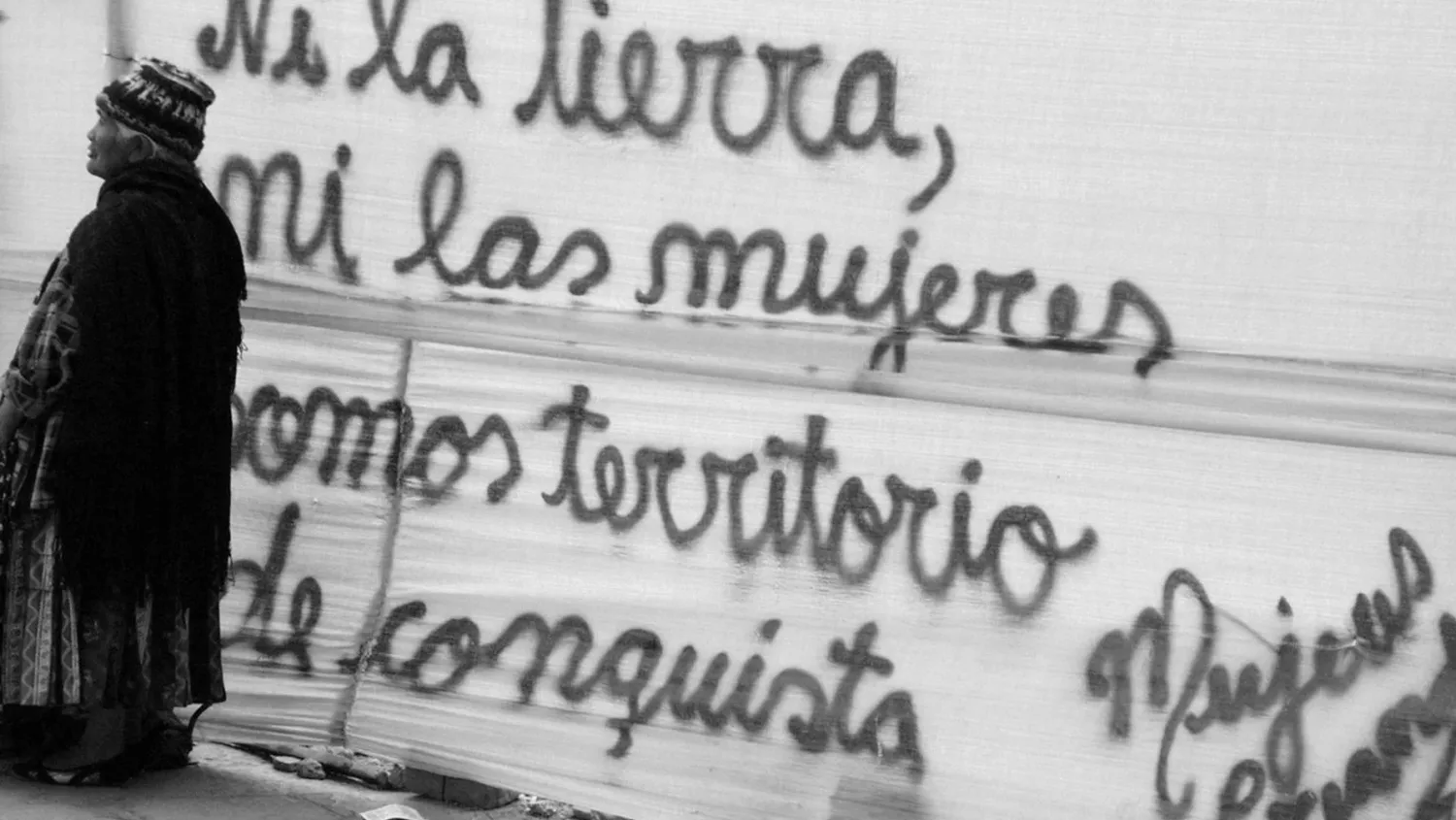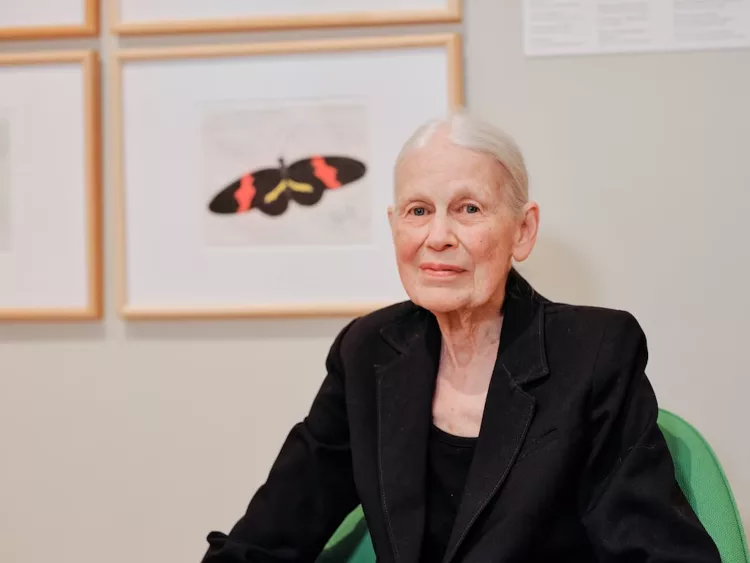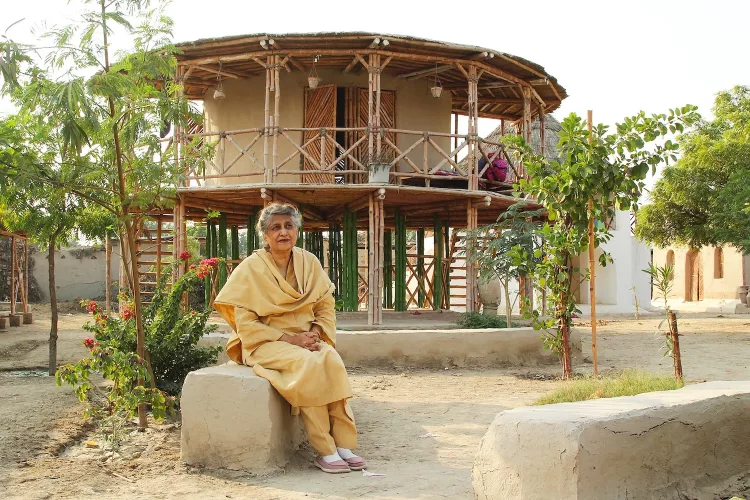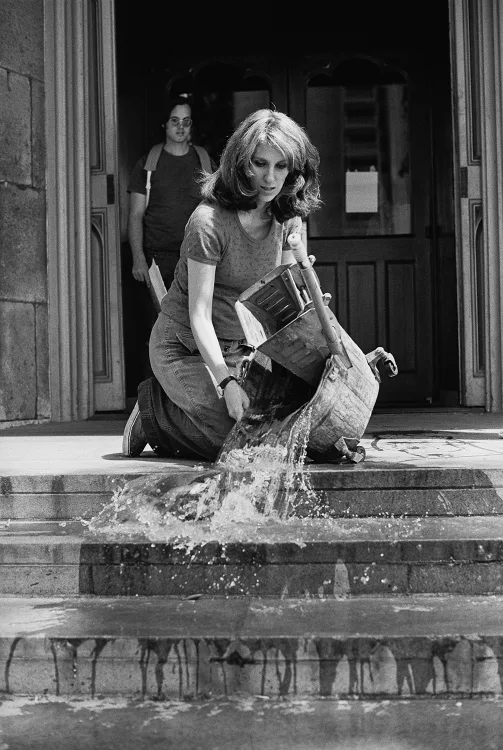Programmes
“Neither the land nor women are territories to be conquered”, graffiti by the collective Mujeres Creando, Bolivia, 2018 © All rights reserved.
Common Ground is a multifaceted research programme about feminist and decolonial ecologies. It stems from the observation that, in art history as in many other fields, women — despite often being at the forefront of ecological action — remain underrepresented in ecological discourse.
From 16th-century pioneers of botanical illustration to the founders of eco-art in the 1970s and ’80s, and architects committed to environmental justice, Common Ground seeks to shed light on the work of artists and architects who have envisioned relationships with the living world that reject systems of domination and oppression — the very systems that have historically rendered their artistic practices and ecological commitments invisible, particularly as gendered and racialised minorities.
Rooted in an intersectional ecological approach, Common Ground pays particular attention to non-Western artists and architects.
The programme includes the publication of biographies, research articles, and animated videos, as well as the organisation of events and workshops.
The programme is coordinated by Anaïs Roesch, a researcher specialising in art and ecology, in collaboration with an ad hoc research committee.
The Common Ground programme is supported by Engie.





